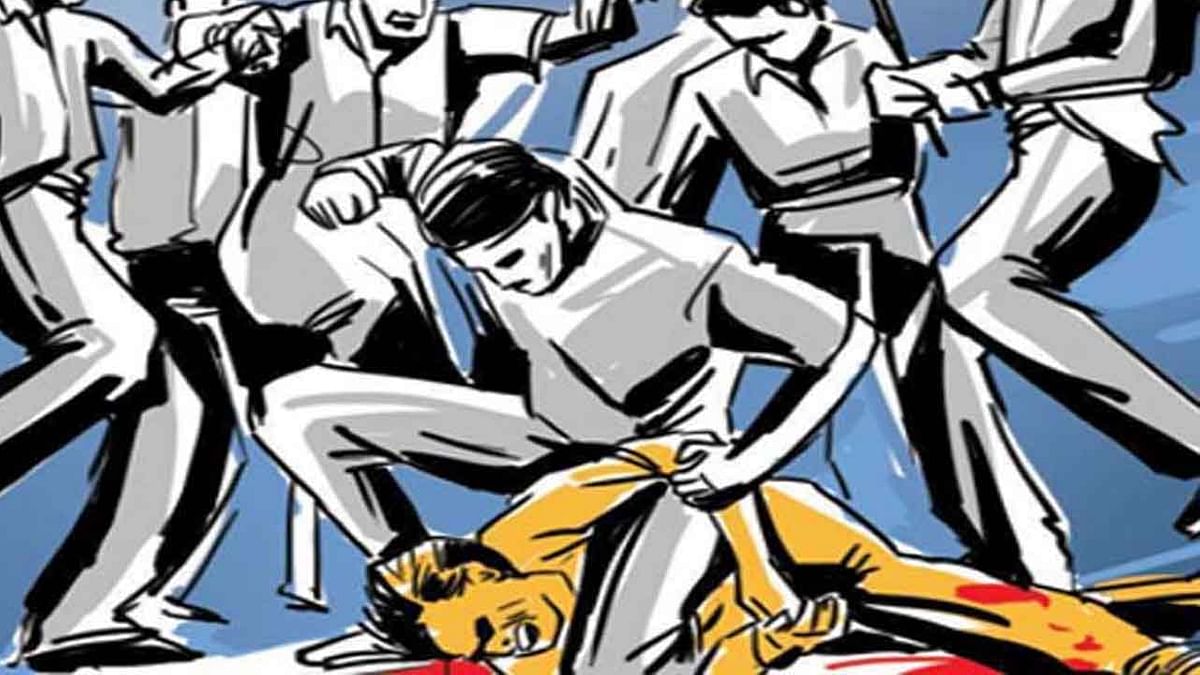The mob lynching of Charvaka

Apart from religious philosophies in ancient India, like Vedanta, there also came into existence a materialist philosophy called lokayat, the philosophy which denied existence of god, soul, angels, spirits, an afterlife, and other supernatural or metaphysical things, and did not accept the authority of the Vedas.
https://en.wikipedia.org/wiki/Lokayata:_A_Study_in_Ancient_Indian_Materialism
https://prepp.in/news/e-492-charvaka-school-or-lokayata-philosophy-art-and-culture-notes
At one time the lokayat philosophy was widespread in India, and numerous books written on it.
However, the conservative elements in society ganged up against them, and destroyed all their books, and now we have some idea of the lokayat philosophy only from books like Madhavacharya’s ‘Sarva Darshan Sangrah‘ where the lokayat philosophy has been stated ( only to be attacked ) in the ‘poorvapaksha’ of the book ( see DP Chattopadhyaya’s ‘Lokayat’ ).
https://en.wikipedia.org/wiki/Lokayata:_A_Study_in_Ancient_Indian_Materialism
The most systematic “lynching” (or mob violence against an individual or individuals) in India, described in the epic ‘Mahabharata’, was that of India’s materialist philosopher Charvaka, as he was not just killed, but was demonised and his ideas distorted for generations. Charvaka was physically eliminated by a mob of servile brahmins because he could speak logical truth (so much for being called a “sweet talker” – a Charvaka!).
When the celebrations for the Pandavas’ victory in the Mahabharata war and Yudhishthir’s coronation were going on, the brahmins stood silently after paying their obeisance :
निःशब्दे च स्थिते तत्र ततो विप्रजने पुनः
At this moment Charvaka came forward and started addressing them. He accused Yudhishthir of killing his own relatives and gurus, and thus unfit to live:
इमे प्राहुर्द्विजाः सर्वे समारोप्य वचो मयि।
धिग्भवन्तं कुनृपतिं ज्ञातिघातिनमस्तु वै।।
किं तेन स्याद्धि कौन्तेय कृत्वेमं ज्ञातिसंक्षयम्।
घातयित्वा गुरूंश्चैव मृतं श्रेयो न जीवितम्।।
His fearless statement stunned everybody. Yudhishthir and the Brahmins were speechless, afraid and ashamed:
ततस्ते ब्राह्मणाः सर्वे स च राजा युधिष्ठिरः।
व्रीडिताः परमोद्विग्नस्तूष्णीमासन्विशांपते।।
However, these Brahmins then started accusing Charvaka of being a demon and a friend of Duryodhana, and eventually, they killed him.
ततस्ते ब्राह्मणाः सर्वे हुंकारैः क्रोधमूर्च्छिताः।
निर्भर्त्सयन्तः शुचयो निजघ्नुः पापराक्षसम्।।
स पपात विनिर्दग्धस्तेजसा ब्रह्मवादिनाम्।
महेन्द्राशनिनिर्दग्धः पादपोऽङ्कुरवानिव।।
Since Yudhishthir was quite grief stricken and devastated at Charvaka’s accusation, a whole section is devoted where Lord Krishna consoles him, while demonizing Charvaka and justifying the act as preordained.
स एष निहतः शेते ब्रह्मदण्डेन राक्षसः।
चार्वाको नृपतिश्रेष्ठ मा शुचो भरतर्षभ।।
See Mahabharata (Pancham Khand): Shanti Parva, 38.22-27, 39.2-11, Gita Press
This incident has set a precedent. If you cannot logically refute your opponent’s argument, just call him a demon, burn all his books, and bump him off